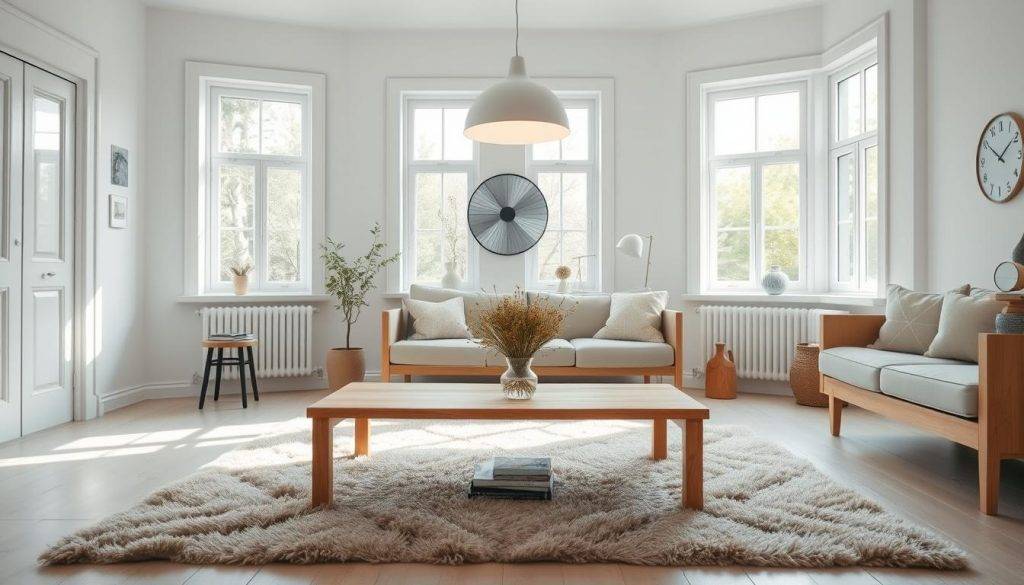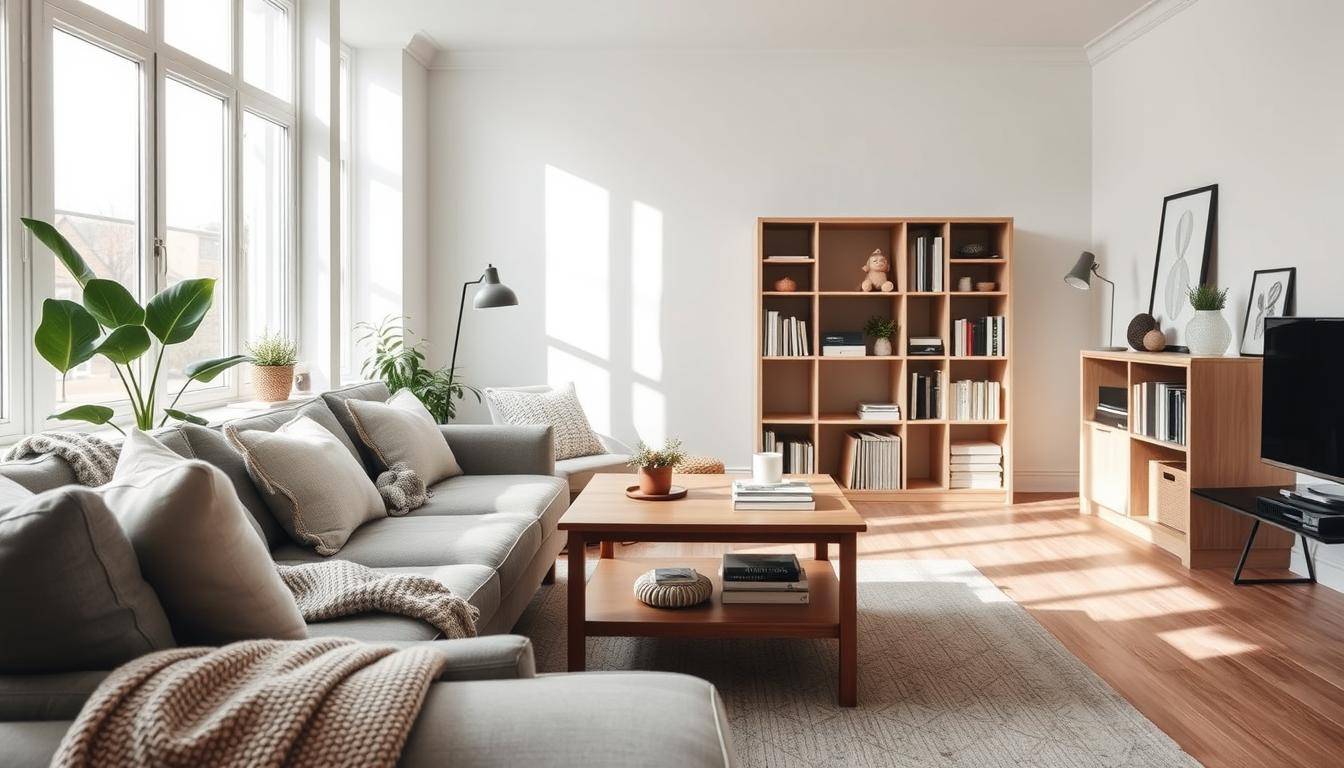“The greatest wealth is to live content with little,” observed philosopher Plato – a sentiment that resonates deeply with Sweden’s time-tested philosophy of lagom. Pronounced lah-gom, this Nordic concept transcends simple moderation. It’s a cultural blueprint for living intentionally in a world that often equates success with excess.
Rooted in Viking-era communal values, this approach began as a survival strategy. Warriors shared resources equally, ensuring everyone’s needs were met without waste. Today, it shapes how Swedes approach work, relationships, and environmental stewardship – proving ancient wisdom can solve modern problems.
Unlike extreme minimalism or relentless ambition, lagom teaches that fulfillment lies in equilibrium. It’s not about deprivation, but discerning what truly adds value to your life. This mindset helps combat burnout and decision fatigue, offering clarity in our overloaded world.
The beauty of this philosophy? It adapts to any lifestyle. Whether managing finances or designing living spaces, lagom provides practical tools for creating harmony. You’ll discover how “enough” becomes not a limitation, but a liberation from society’s pressure to constantly acquire more.
Key Takeaways
- Originates from Viking traditions of fair resource sharing
- Promotes balance over extremes in daily decisions
- Offers actionable strategies for modern life challenges
- Differs from minimalism by focusing on adequacy
- Reduces stress through intentional consumption
Discovering Lagom: Sweden’s Approach to Moderation and Simplicity
Sweden’s philosophy of moderation operates like a compass for modern living. It blends social awareness with personal satisfaction—a dual approach that transforms everyday choices. Imagine reaching for cookies at a gathering: taking one instead of three creates space for others to enjoy. This simple act embodies the balance between individual needs and community well-being.

The idea isn’t about strict rules but recognizing your “enough” point. Unlike extreme minimalism that demands empty shelves, this method asks: “Does this add value without creating clutter?” A coffee mug collection stays if each piece sparks joy—but stops before becoming overwhelming.
Moderation shows up in unexpected places. It’s leaving work on time to recharge, or choosing durable items over disposable trends. This mindset reduces decision fatigue—you spend less energy choosing between 50 cereal brands when three quality options suffice.
Swedes call this social awareness “lagom,” though you won’t hear them boast about it. The concept quietly shapes sustainable habits, from energy use to gift-giving. As one Stockholm resident notes: “We don’t need mountains of stuff—just what works.” It’s practical wisdom that turns balance from an idea into daily practice.
Embracing Lagom in Everyday Life
Daily decisions become simpler when guided by the principle of just enough. This Swedish approach transforms routines through intentional choices that honor both productivity and peace. Let’s explore how to apply these balanced strategies to three key areas.
Optimizing Work-Life Balance and Study Habits
Strategic pauses fuel better focus. Instead of marathon study sessions, try 25-minute blocks with 5-minute breaks. Reward completed tasks with a walk or fresh air—it’s about sustaining energy, not pushing limits.
| Traditional Approach | Lagom Method | Result |
|---|---|---|
| 8-hour work marathons | 90-minute focused intervals | Reduced mental fatigue |
| Isolated studying | Weekly peer discussions | Deeper understanding |
| Constant availability | Protected recharge time | Improved creativity |
Savoring Social Moments with Fika and Friends

The daily coffee pause—fika—shows how small rituals strengthen connections. Whether sharing cinnamon buns with colleagues or enjoying quiet reflection, these breaks create natural rhythms. One Stockholm teacher notes: “Our 3 PM fika isn’t optional—it’s how we reset.”
Simplifying Your Environment for Clarity
Swedish homes showcase functional beauty. Choose multifunctional furniture over single-use items. Keep walls light-colored and surfaces clear—not empty, but curated. Ask: “Does this object solve a problem or spark joy?” This creates spaces that calm rather than overwhelm.
Lagom in Personal Relationships and Well-being
True connection thrives in the space between solitude and togetherness. This Swedish approach to relationships transforms social energy management through intentional engagement – giving fully when present, then stepping back to recharge. It’s about creating rhythms that honor both connection and self-care.

Balancing Family, Friends, and Personal Time
Healthy boundaries prevent emotional exhaustion. A Stockholm therapist shares: “We teach clients to view relationships like Swedish seasons – periods of warmth followed by restorative quiet.” This balance protects individual identity while nurturing bonds.
| Traditional Approach | Balanced Method | Outcome |
|---|---|---|
| Weekly family dinners | Monthly deep-dive conversations | Reduced obligation stress |
| Constant group chats | Scheduled check-in times | Thoughtful communication |
| No personal downtime | Protected reflection hours | Renewed social energy |
Mindful Living: Finding Contentment in Simplicity
Evening routines become grounding rituals. Swap screen time for journaling or music – activities that quiet mental chatter. One Malmö resident notes: “My phone sleeps in the kitchen after 8 PM. Mornings feel clearer now.”
This philosophy extends to digital habits. Limit notifications to essential contacts. Choose one quality podcast over endless scrolling. Small changes create space for what truly matters in daily life.
Remember: Balance isn’t about perfection. It’s designing a sustainable way to cherish people while honoring your needs. That’s where lasting well-being grows.
Conclusion
True balance isn’t about perfection—it’s discovering what “enough” means in your world. The Swedish approach to living well works because it adapts to modern challenges. It helps people focus on what matters most, whether that’s meaningful connections or purposeful work.
This philosophy turns everyday choices into opportunities for growth. You decide which things deserve your energy—and which don’t. Maybe it’s buying fewer clothes but choosing better quality. Or setting boundaries to protect your time. Small changes create big shifts.
The real power lies in customization. Your version of balance might mean weekly family dinners instead of daily check-ins. Or pursuing career goals while keeping weekends tech-free. Lagom gives tools, not rules—a way to design life around your values.
In a world that glorifies extremes, this middle path offers lasting contentment. It transforms “having it all” into cherishing what truly fills your cup. Start with one area—your schedule, space, or spending. Notice how intentional choices create freedom for living, not just existing.
That’s the secret: When you stop chasing more, you make room for better. Better relationships. Better focus. Better days. And that’s how ordinary lives become extraordinary—one balanced choice at a time.
FAQ
How can moderation improve work-life balance?
Prioritizing intentional time management helps avoid burnout. Setting clear boundaries between professional tasks and personal downtime creates sustainable routines—like scheduling focused work blocks followed by mindful breaks.
What role does "fika" play in Swedish culture?
The daily coffee break—often with colleagues or friends—encourages connection without excess. It’s a practice of pausing to enjoy simple pleasures, reinforcing social bonds while maintaining energy throughout the day.
Can balancing relationships reduce stress?
Yes. Allocating quality time for family while preserving solo moments prevents emotional fatigue. For example, planning weekly dinners together but also scheduling quiet evenings fosters mutual respect for individual needs.
What’s a practical way to simplify your environment?
Start with decluttering one area—like a workspace—and keep only essentials. Use neutral colors and multifunctional furniture to create calm. This reduces decision fatigue and supports mental clarity.
How does this concept differ from minimalism?
While minimalism focuses on owning fewer items, the Swedish philosophy emphasizes enoughness—having what you need without deprivation. It applies to habits, relationships, and consumption, not just physical spaces.




























































